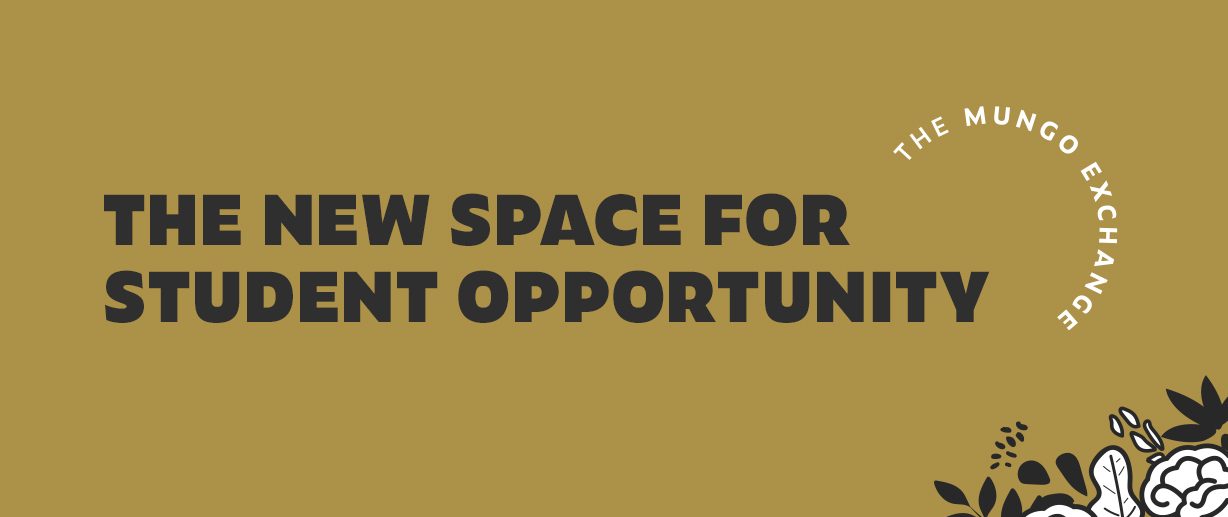Stewart ’74 and Steven ’81 Mungo understand what it means to work. “Dad took me to job sites as soon as I was old enough to hold a hammer,” says Steven.
“I was drawing site plans in high school,” agrees Stewart. “Our father expected us to work. We didn’t know anything else.”
This commitment to hard work followed the Mungo brothers through graduation from Wofford and eventually to jointly owning and operating Mungo Homes, a company started by their father in 1954 that today serves as an industry leader in home construction and land management.
“It’s important that all Wofford students have access to opportunities that will help prepare them for a successful life after graduation,” adds Stewart. “Access to those opportunities has led to our support of what will now be called the Mungo Exchange.”
Located in the Michael S. Brown Village Center, Wofford’s Mungo Exchange conveniently locates and intentionally highlights the college’s collection of experiential learning opportunities for students. It also features a new name and brand identity for the office formerly known as the Space in the Mungo Center, now called the Career Center and the Office of Entrepreneurship and Innovation.
“Anything we can do to break down barriers and help our students understand what the Career Center is and how it will assist and support them is a great opportunity for us,” says Director of the Career Center Dr. LaTasha Smith-Tyus. “From resumé development to interviewing and networking skills to internships and major and career exploration, this new name and brand helps clearly define who we are and what we do, so our time with students can be spent helping prepare them for what’s next.”
In addition to the Career Center and the Office of Entrepreneurship and Innovation, the Mungo Exchange includes the offices of International Programs, Undergraduate Research and Community-Based Learning.
“The Mungo Exchange gives us the ability to demonstrate the impact of our collective programs as a portfolio of offerings that are proven to add enormous value to the student experience and to link students to success after college,” says Amy Lancaster, dean of international programs.
Within the past year, Forbes, U.S. News & World Report, ThoughtCo. and the National Institutes of Health have published articles about the benefits of study abroad during college. Among the reasons listed are higher graduation rates, student self-sufficiency and confidence, marketable language skills and greater employment success post-graduation. Differentiators such as internships, undergraduate research, entrepreneurial thinking and community-based learning afford similar benefits.
“What’s so exciting about the Mungo Exchange is that students returning from studying overseas may now come to a convenient location where they can learn to leverage their study abroad experience into securing an internship, collaborating with a faculty member through research, starting a business or making a difference in the local community,” adds Lancaster. “And, conversely, the student who has been involved in these experiential learning opportunities during their first few years at Wofford may be more likely to broaden the scope of those activities by studying abroad.”
The Mungos also hope the students who benefit from the college’s high-impact programs will pay it forward after they leave Wofford. “We need to cultivate new donors, to show our future donors how important it is to give back,” says Stewart. “The more successful our graduates, the more successful our college. It’s just that simple.”
What’s in the Mungo Exchange?
The Career Center:
Helps students develop career action plans, find meaningful internships and prepare for life after Wofford.
The Center for Community-Based Learning:
Advances campus-wide community engagement.
The Office of Entrepreneurship and Innovation:
Provides education, resources and a community of support and the connections necessary to develop entrepreneurial ventures.
The Office of International Programs:
Connects students to academic, internship and research-based programs abroad that foster intercultural development.
Supports undergraduate research and student/faculty collaborative projects.
By Annie S. Mitchell
